On the eve of the new year, I took this video of a huge raft of migrating snow geese, on Thompson Lake at the Nature Conservancy's Emiquon Nature Preserve in Fulton County Illinois, as it rises and lowers to form a new raft farther south on the lake. You can hear the wind and the highway noises, but I left in the sound so you can hear the geese. I uploaded this video as is, without editing.
Come with me on my nature walks at various parks and forest preserves in Central Illinois.
Saturday, December 31, 2011
Saturday, November 05, 2011
A Short Drive through Lewistown
Driving around Lewistown one sunny afternoon, I stopped to photograph a few of the historic buildings.
The Fulton County Courthouse was built in 1897 to replace the earlier Courthouse destroyed by fire.

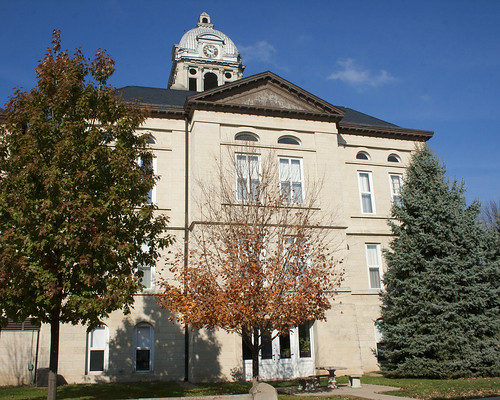
Caboose in Lewistown, Illinois, sitting on a small section of track, right next to the Railway Express Agency.
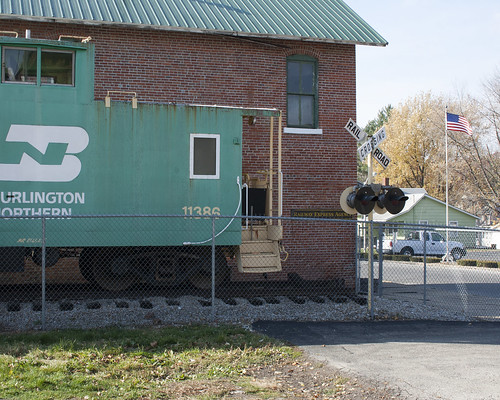
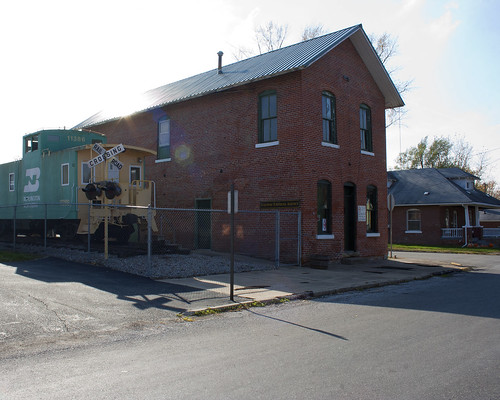
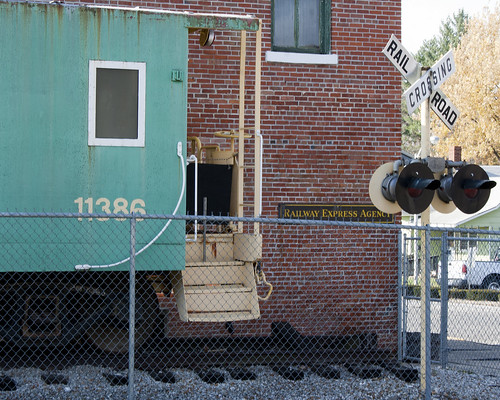
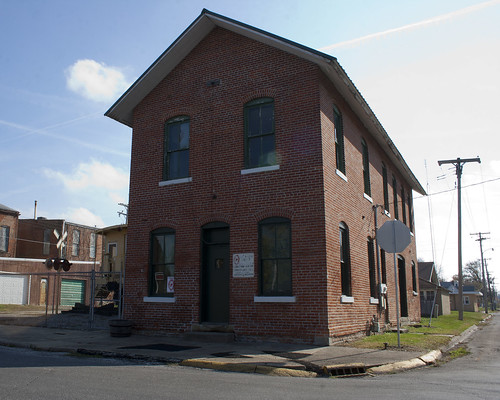
"On December 16, 1905, Lewistown was notified a $5,000 grant (later increased to $5,400) would be forthcoming from the Carnegie Corporation. The following year a lot site was purchased for $450 from Amelia and Daniel Talbott, a building design by Paul O. Moratz of Bloomington, IL was created, and T. M. Mercer was contracted for the construction of the Lewistown Carnegie Public Library. The library materials were moved once again; but, this move has lasted more than 100 years.
The building’s cornerstone bears the inscription “Carnegie 1906.” It not only serves as a testament to the generosity of Andrew Carnegie but also to the untiring efforts of the Lewistown Public Library and Reading Room Association and the Lewistown community."
Lewistown Carnegie Library's History

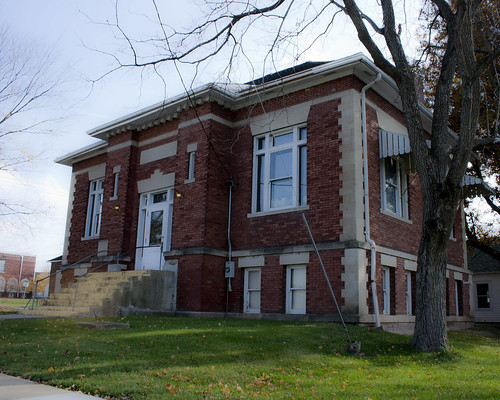
Ratcliff Park is located on West Ave E, County 14 Road. Glen Ratcliff donated the park to the park district. There are two quarter mile walking/biking asphalt paths, fitness stations, pavilion, restrooms and picnic areas. These photos were taken from the upper park. In the first photo, if you look closely, you can see two eagles soaring over the hillside.
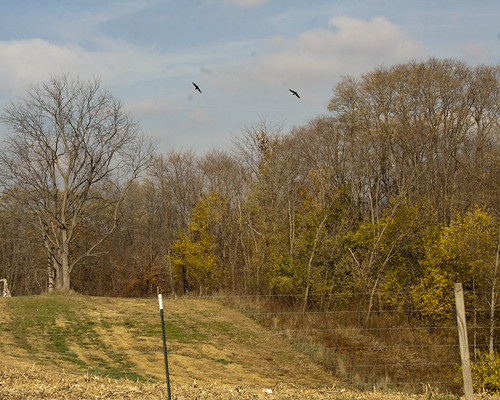
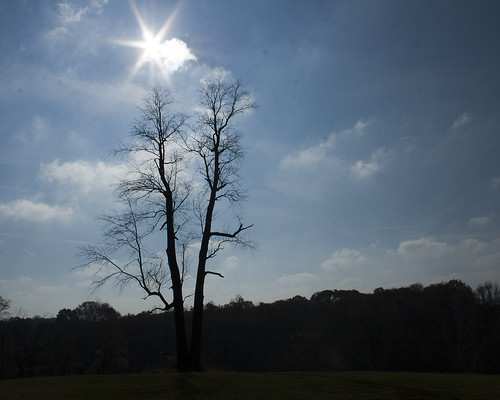
The Fulton County Courthouse was built in 1897 to replace the earlier Courthouse destroyed by fire.


Caboose in Lewistown, Illinois, sitting on a small section of track, right next to the Railway Express Agency.




"On December 16, 1905, Lewistown was notified a $5,000 grant (later increased to $5,400) would be forthcoming from the Carnegie Corporation. The following year a lot site was purchased for $450 from Amelia and Daniel Talbott, a building design by Paul O. Moratz of Bloomington, IL was created, and T. M. Mercer was contracted for the construction of the Lewistown Carnegie Public Library. The library materials were moved once again; but, this move has lasted more than 100 years.
The building’s cornerstone bears the inscription “Carnegie 1906.” It not only serves as a testament to the generosity of Andrew Carnegie but also to the untiring efforts of the Lewistown Public Library and Reading Room Association and the Lewistown community."
Lewistown Carnegie Library's History


Ratcliff Park is located on West Ave E, County 14 Road. Glen Ratcliff donated the park to the park district. There are two quarter mile walking/biking asphalt paths, fitness stations, pavilion, restrooms and picnic areas. These photos were taken from the upper park. In the first photo, if you look closely, you can see two eagles soaring over the hillside.


Saturday, October 08, 2011
October Road
Although I can still see the lake when I look across the newly planted bottomland forest from Clark Road, some day the Oaks, Pecans, and Sycamores will block the view.
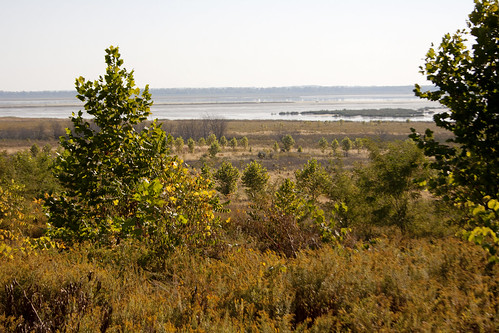
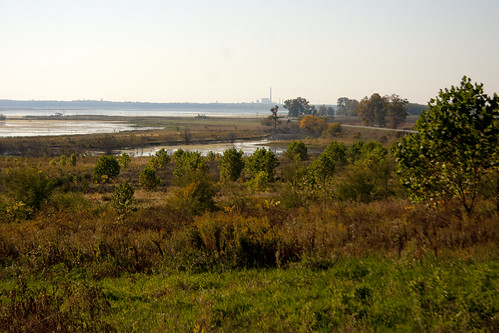
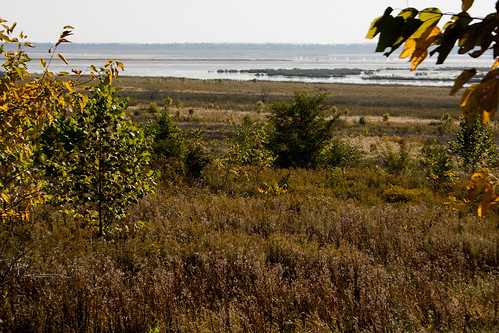
Several small snakes didn't make it across the road in their attempt to get up the bluff from the grassland.
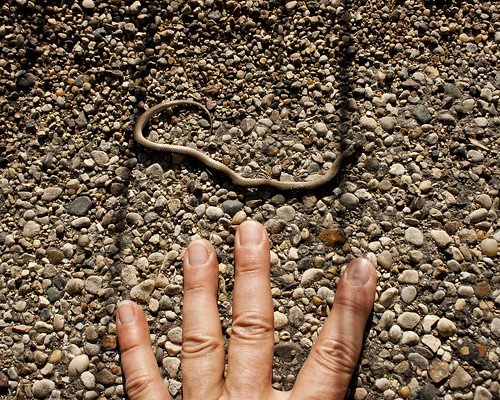
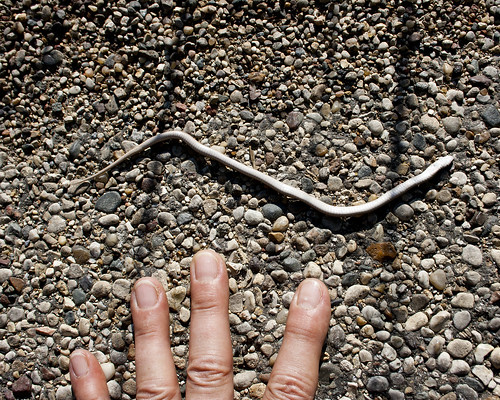
Few flowers bloomed.
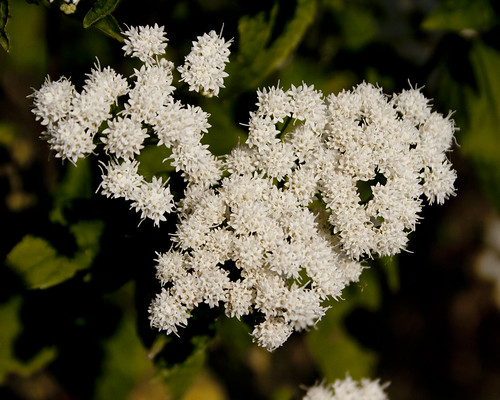
Dragonflies were still abundant, and slower than they were in the hot months of summer, more likely to land.
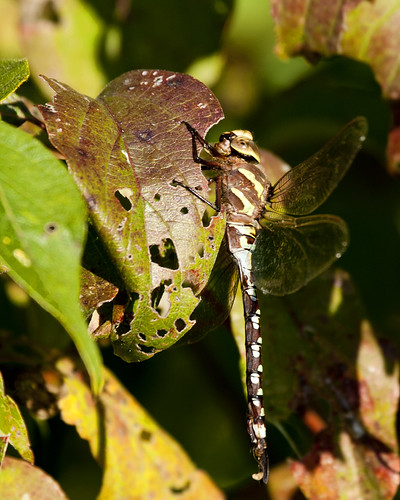
Bumble Bees still buzzed about.
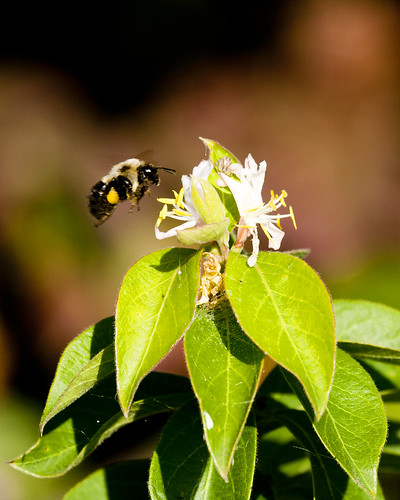
Katydids and spiders.
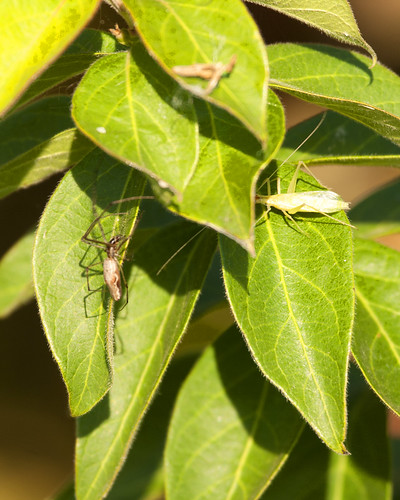
All to be found along Clark Road in October.




Several small snakes didn't make it across the road in their attempt to get up the bluff from the grassland.


Few flowers bloomed.

Dragonflies were still abundant, and slower than they were in the hot months of summer, more likely to land.

Bumble Bees still buzzed about.

Katydids and spiders.

All to be found along Clark Road in October.

Wednesday, October 05, 2011
The Nature Conservancy's Emiquon Wetland Observatory
The trees north of the entrance road leading to the Wetland Observatory displayed their autumn colors.

Dabbling ducks of various kinds filled the shallow waters of the wetland.

A group of people with some folks from TNC and Dickson Mounds Museum gathered out on the boardwalk overlooking the lake.
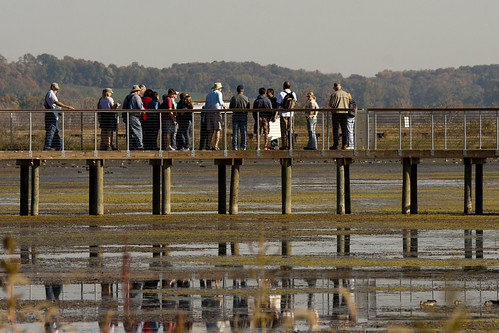
From the Lake Observatory boardwalk, I could see the Wetland Observatory, across water alive with plants and algae.

Pelicans and Cormorants lined up on the ridge between Flag and Thompson Lakes.
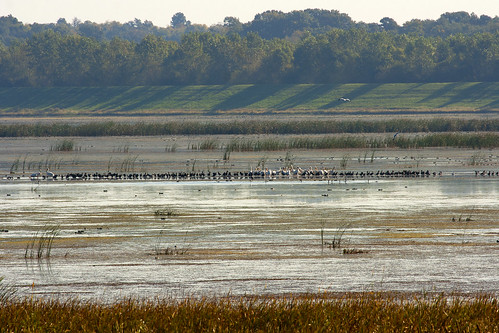
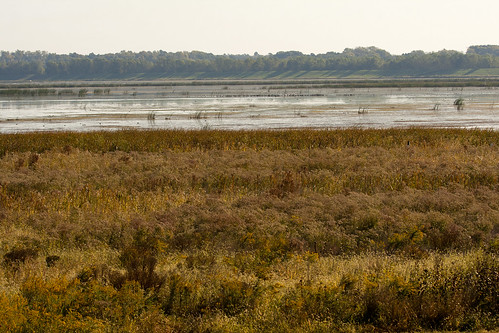

Dabbling ducks of various kinds filled the shallow waters of the wetland.

A group of people with some folks from TNC and Dickson Mounds Museum gathered out on the boardwalk overlooking the lake.

From the Lake Observatory boardwalk, I could see the Wetland Observatory, across water alive with plants and algae.

Pelicans and Cormorants lined up on the ridge between Flag and Thompson Lakes.


Monday, October 03, 2011
October Light
"There is no season when such pleasant and sunny spots may be lighted on, and produce so pleasant an effect on the feelings, as now in October."
- Nathaniel Hawthorne
A view of the Emiquon Wetland Observatory from Clark Road shows the changing colors of early October.

In early Autumn, many insects are out sunning themselves, making it easier to get photographs:
Praying Mantis:


Common Green Darner dragonfly, female:
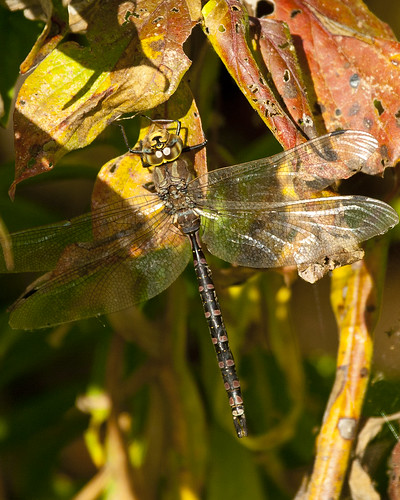
Common Green Darner, male:

Harvester:

A grackle seemed to be eyeing the insects I was photographing!
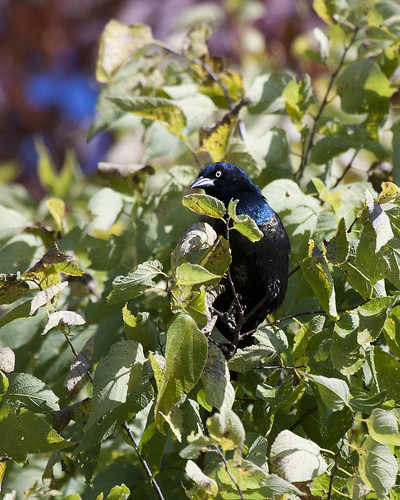
A female Indigo Bunting came out to see what was going on:

The trees between Clark Road and the lake are growing; one day I won't be able to see the lake from this point.

- Nathaniel Hawthorne
A view of the Emiquon Wetland Observatory from Clark Road shows the changing colors of early October.

In early Autumn, many insects are out sunning themselves, making it easier to get photographs:
Praying Mantis:


Common Green Darner dragonfly, female:

Common Green Darner, male:

Harvester:

A grackle seemed to be eyeing the insects I was photographing!

A female Indigo Bunting came out to see what was going on:

The trees between Clark Road and the lake are growing; one day I won't be able to see the lake from this point.

Sunday, September 04, 2011
Sunset over Thompson Lake
By September 4, the weather had cooled down and it was quite pleasant. I stopped by the Emiquon Nature Preserve visitor access area and took a few photos of the lake in the setting sun.
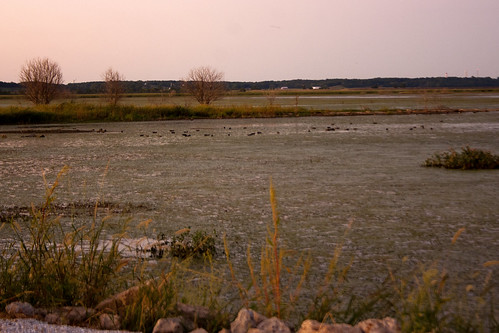
I walked past the canoe launch on my way to the elevated observation platform.
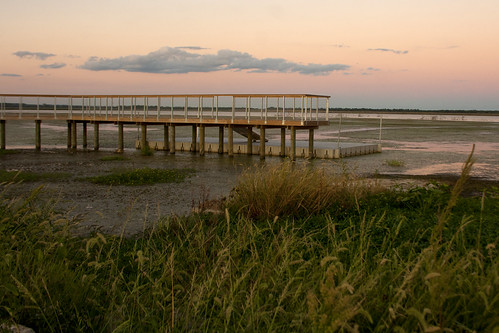
As I climbed the steps to the overlook at the Wetland Observatory, I turned to look towards the sun setting over the bluffs on the other side of the highway.
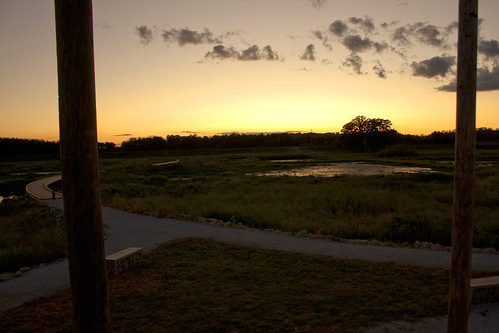
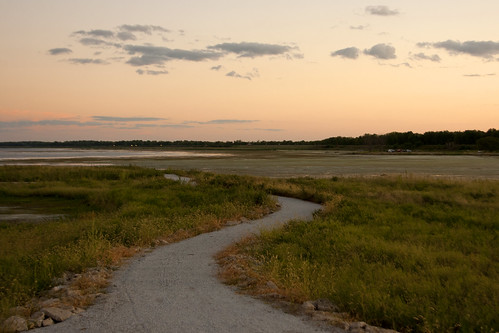
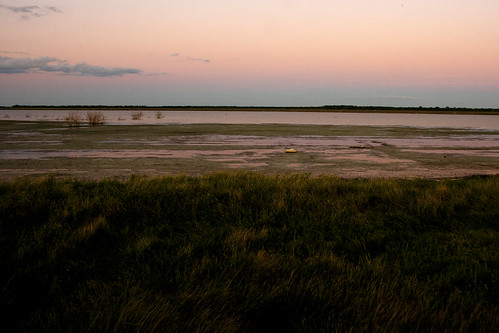
The waxing half moon was rising as the sun set behind the nature preserve.
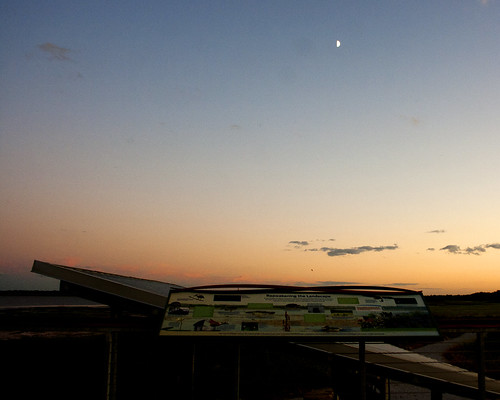

I walked past the canoe launch on my way to the elevated observation platform.

As I climbed the steps to the overlook at the Wetland Observatory, I turned to look towards the sun setting over the bluffs on the other side of the highway.



The waxing half moon was rising as the sun set behind the nature preserve.

Wednesday, August 31, 2011
Clark Road Pathway Overgrown
On the last day of August, I decided to take a walk down the pathway from Clark road to the levee. The pathway was completely overgrown with wetland plants that heavy rains created in June and early July, before the oppressive heat and corresponding drought moved into the area.
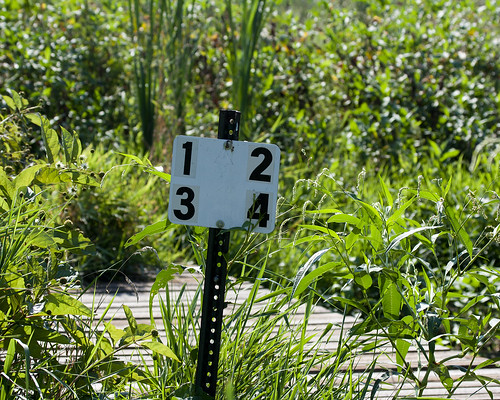
Great Blue Lobelia bloomed at the edge of the prairie.
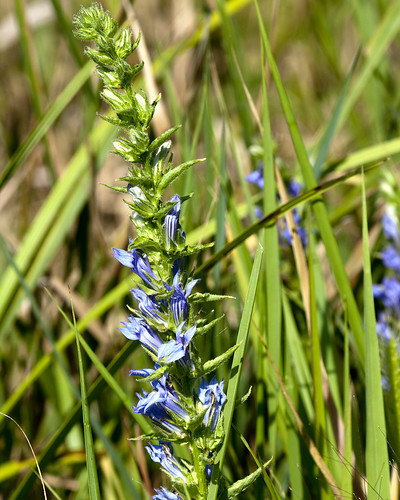
The pond the beavers created under the bridge was dried up, and the plants had taken over.
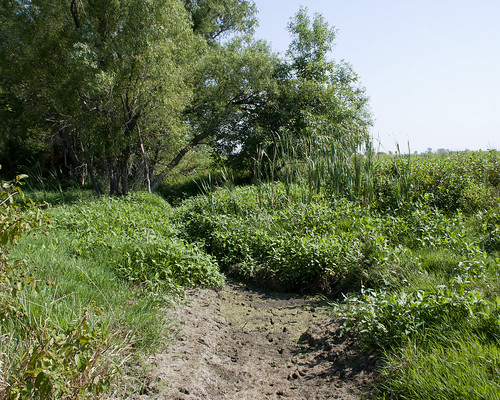
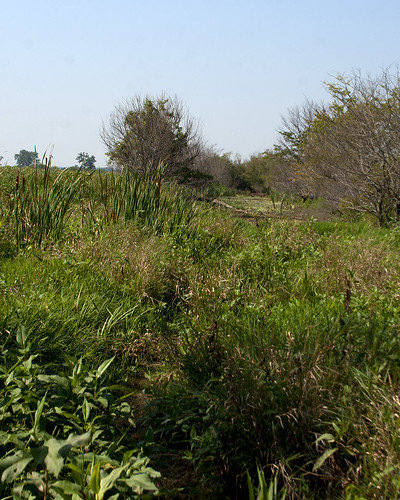
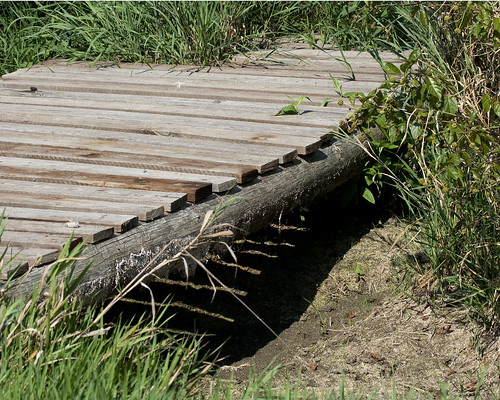
Plants blocked the pathway leading away from the bridge TNC built to cross the stream that crosses the path.
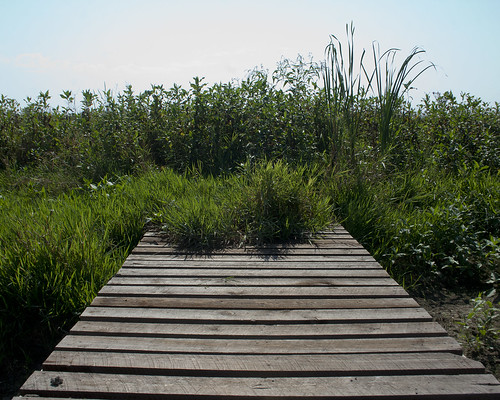
I fought my way past the plants only to find more plants; no trace of the former pathway could be found. Foxtail grass, Sneeze Weed, Boneset, and Ironweed, sedges and other wetland plants covered the open acres of land between the stream and Thompson Lake.
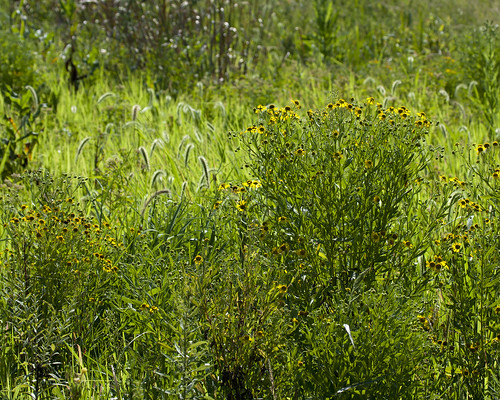
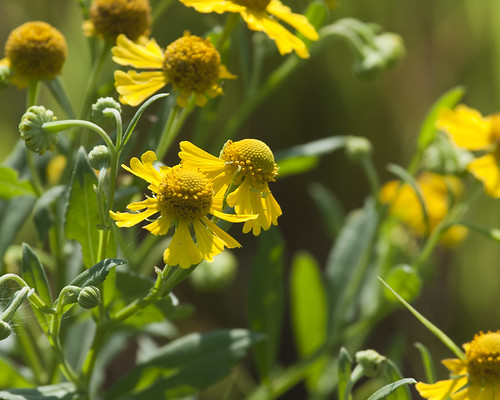
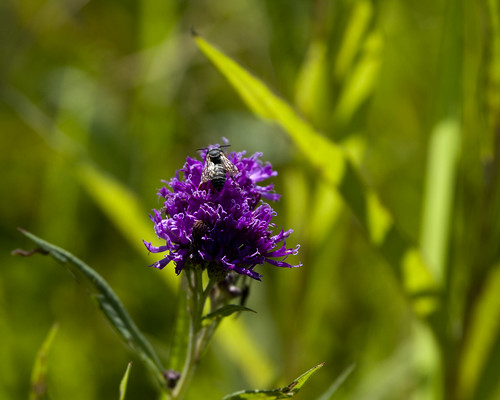

Great Blue Lobelia bloomed at the edge of the prairie.

The pond the beavers created under the bridge was dried up, and the plants had taken over.



Plants blocked the pathway leading away from the bridge TNC built to cross the stream that crosses the path.

I fought my way past the plants only to find more plants; no trace of the former pathway could be found. Foxtail grass, Sneeze Weed, Boneset, and Ironweed, sedges and other wetland plants covered the open acres of land between the stream and Thompson Lake.



Subscribe to:
Comments (Atom)